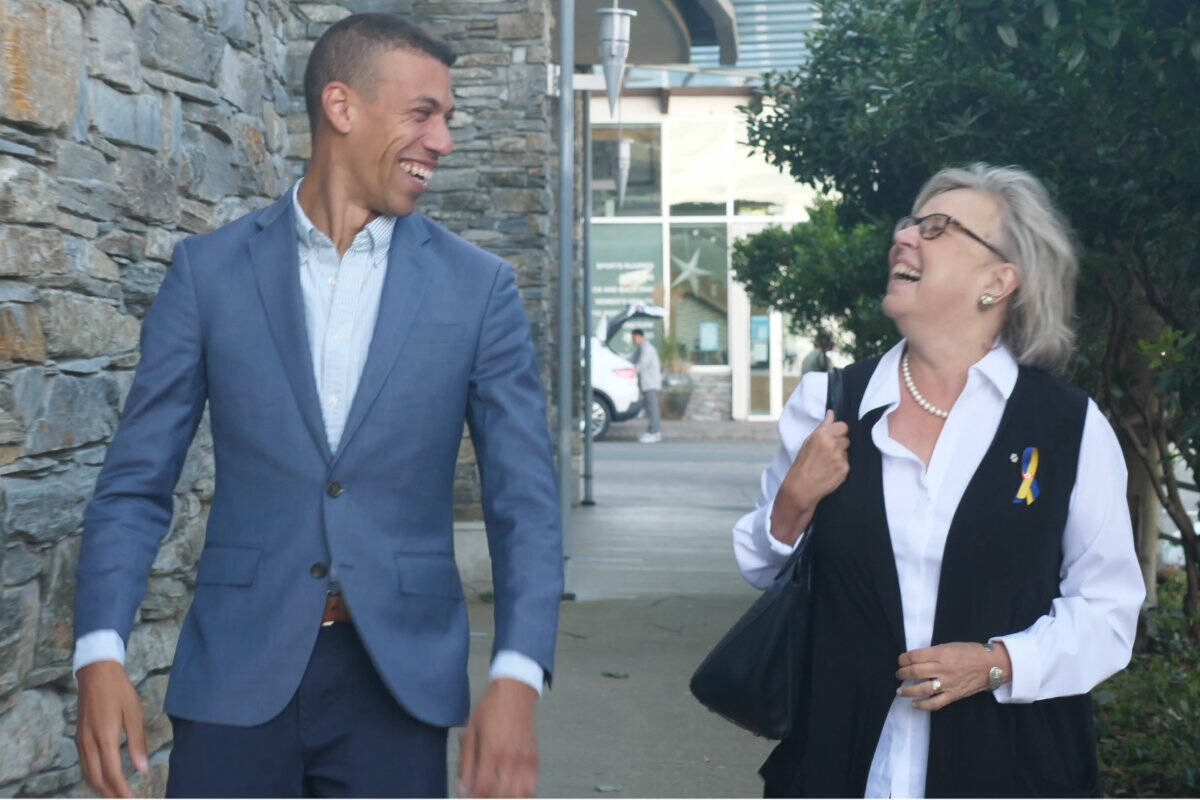Local MP Elizabeth May said she would have not become leader of the federal Green Party again if she did not think the climate crisis was pressing.
“I wouldn’t be doing this if I felt that either the government or the opposition parties understood the urgency of the climate crisis,” she said Monday in an interview with Black Press Media. She later said that being a leader gives her a bigger voice to speak about climate. “I have the honour of representing Saanich-Gulf Islands in Parliament…but it is the old line, ‘if a trees falls in the forest and no one hears it, does it make a sound?’ If you are a parliamentarian and you don’t get media coverage, because you are the ex-leader, do you make a sound?”
She made these comments after she won her party’s leadership race on the sixth and final ranked ballot with 4,666 votes. May had been leader between 2006 and 2019. May, who ran on a joint ticket with Jonathan Pedneault, remained in the lead throughout the voting, with Anna Keenan finishing a strong second.
“I was immensely relieved, ” said May, when asked about her immediate reaction. “There was definitely a competitive race,” she added while praising the positive experience of the leadership race.
Pedneault’s status as would-be deputy leader still remains to be confirmed as it requires a change in the party’s constitution. But May made it clear that this constitutional change is a longer-term project. Pedneault will instead be working on internal party structures, while May will focus her efforts on raising the climate change issue in the House of Commons, including efforts to stop the Trans-Mountain pipeline.
RELATED: Elizabeth May elected Green leader again, to share burden with Jonathan Pedneault
“That is of course a very strong concern in our area, because we have a seven-fold increase in tankers leading with material that can be cleaned up (because of the pipeline),” she said. “That pipeline is not a foregone conclusion.”
May said those are among the key things which the party can and has to do before the next election, to avoid losing any chance of holding the global temperature increase to 1.5 degrees Celsius as per the Paris climate change treaty. “The thought of exceeding 1.5 is horrific,” said May, adding later that the prospect of exceeding 2 degrees Celsius looms.
May’s return to the leadership coincided with the conclusion of the Climate Change Conference (COP 27) in Egypt, with results May described as disappointing, its only substantial outcome being the creation in principle of a compensation fund from developed nations to help developing nations deal with the effects of climate change. “But there is no money in that fund yet and the urgency was to see commitments to phase out fossil fuels, and Canada among other industrialized countries said no.”
Do you have a story tip? Email: newsroom@peninsulanewsreview.com.
Follow us on Twitter and Instagram, and like us on Facebook.

